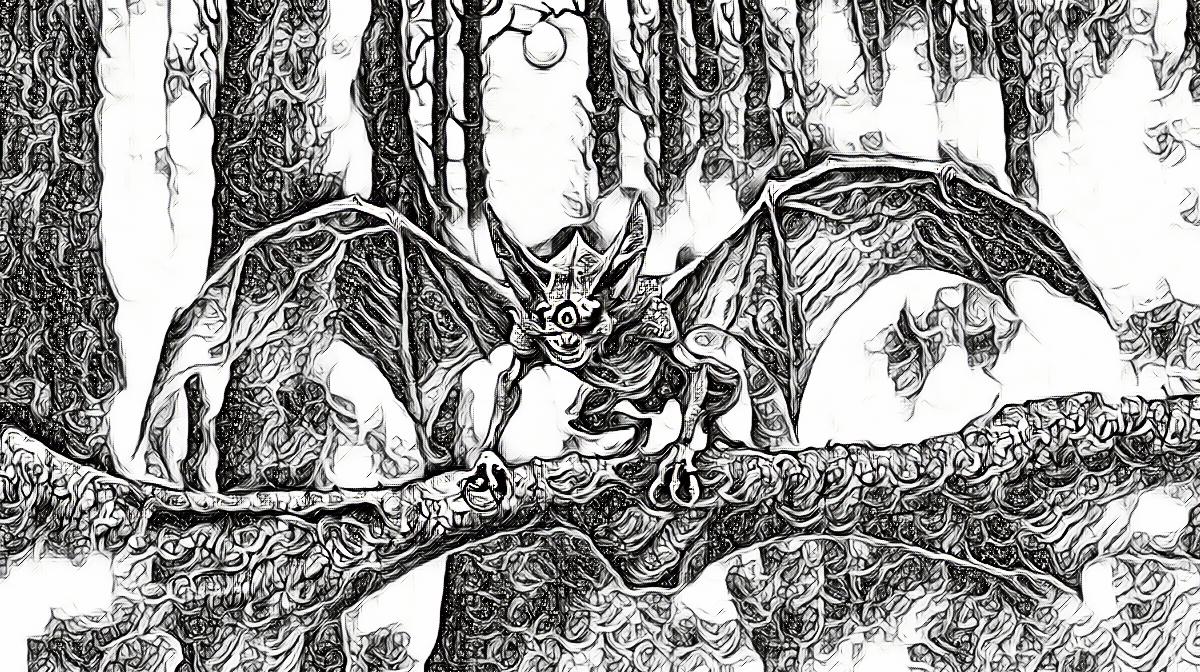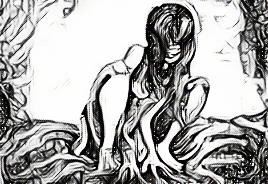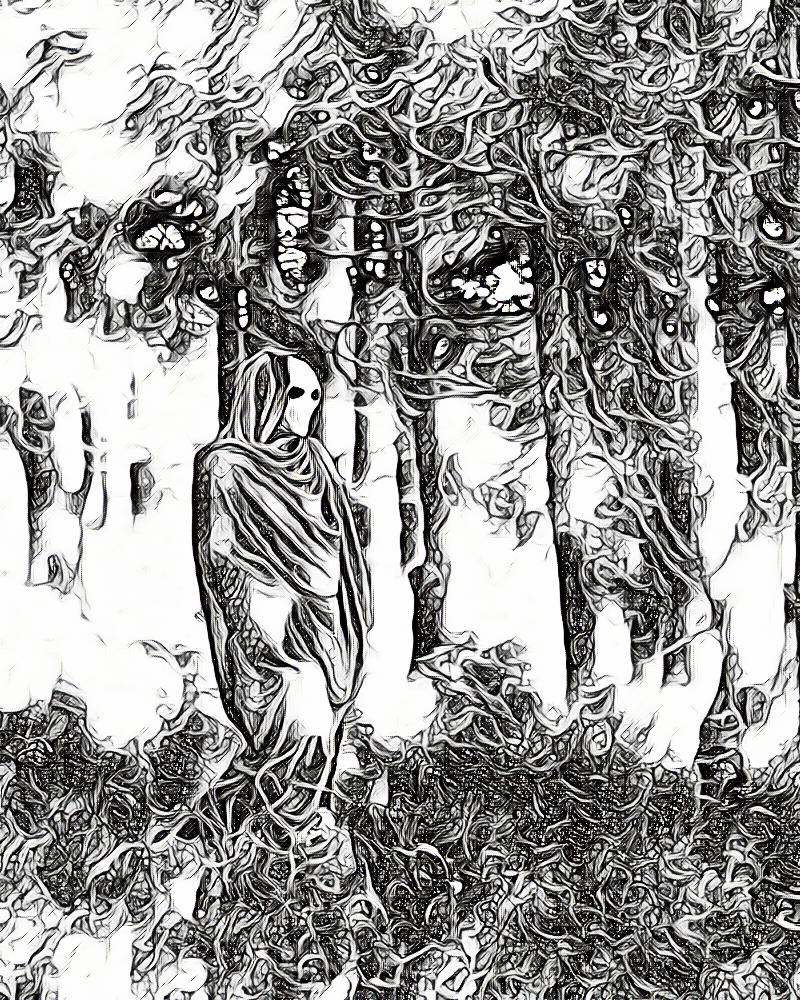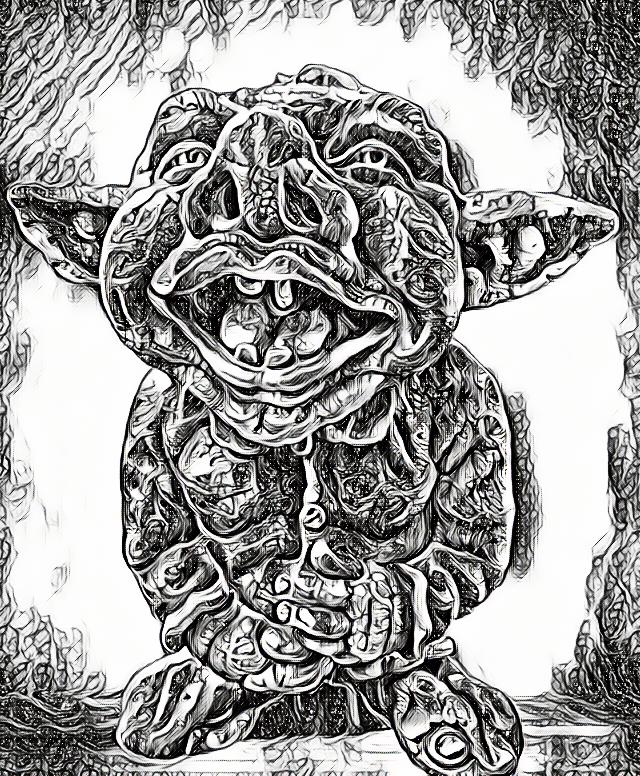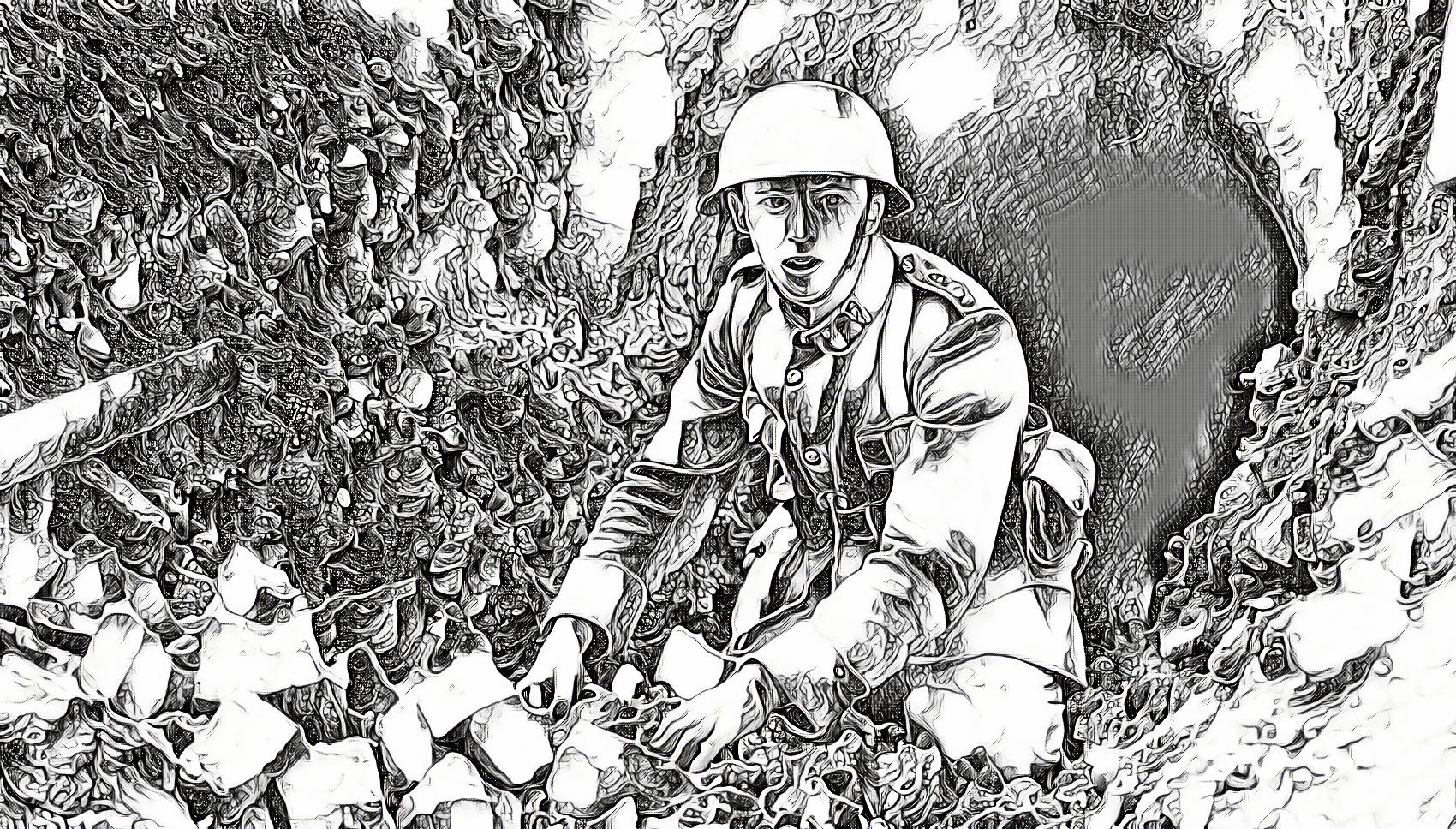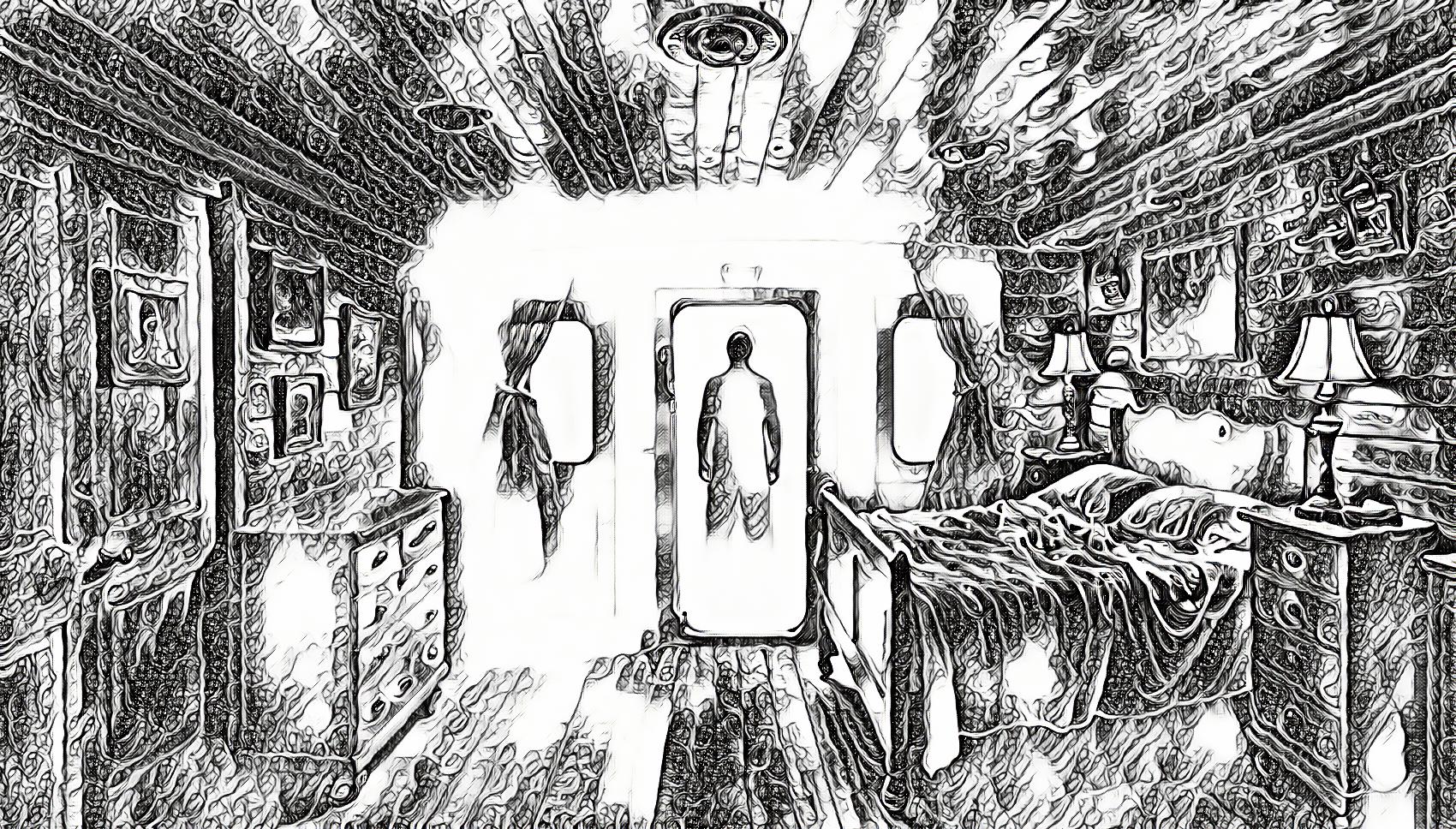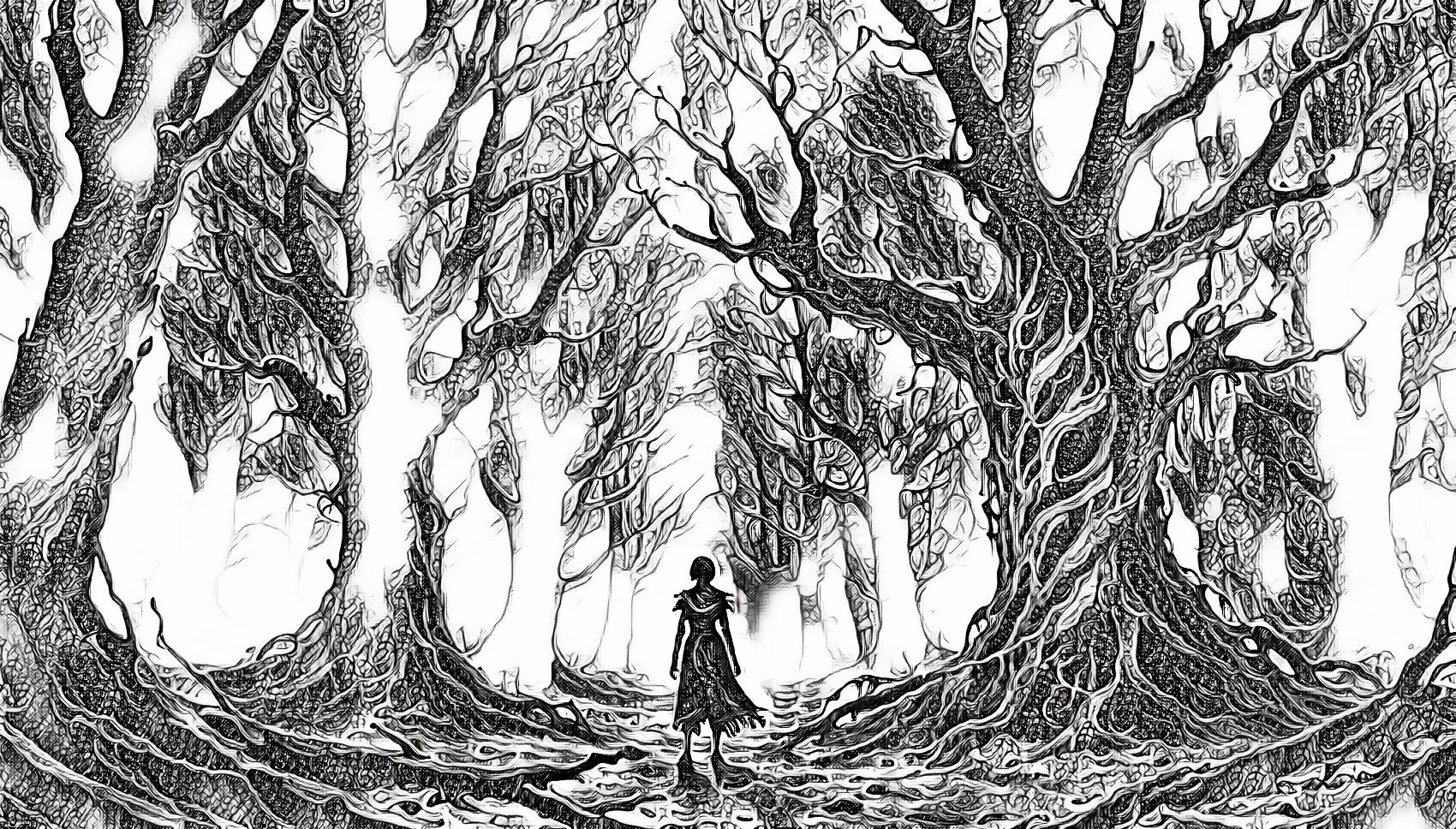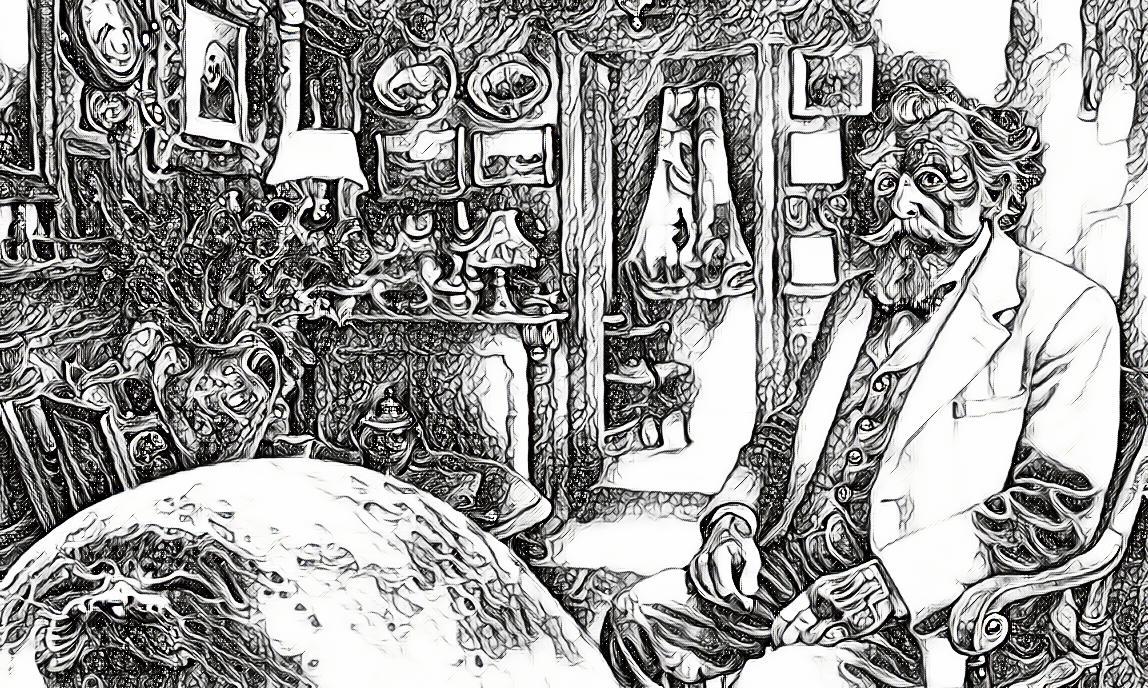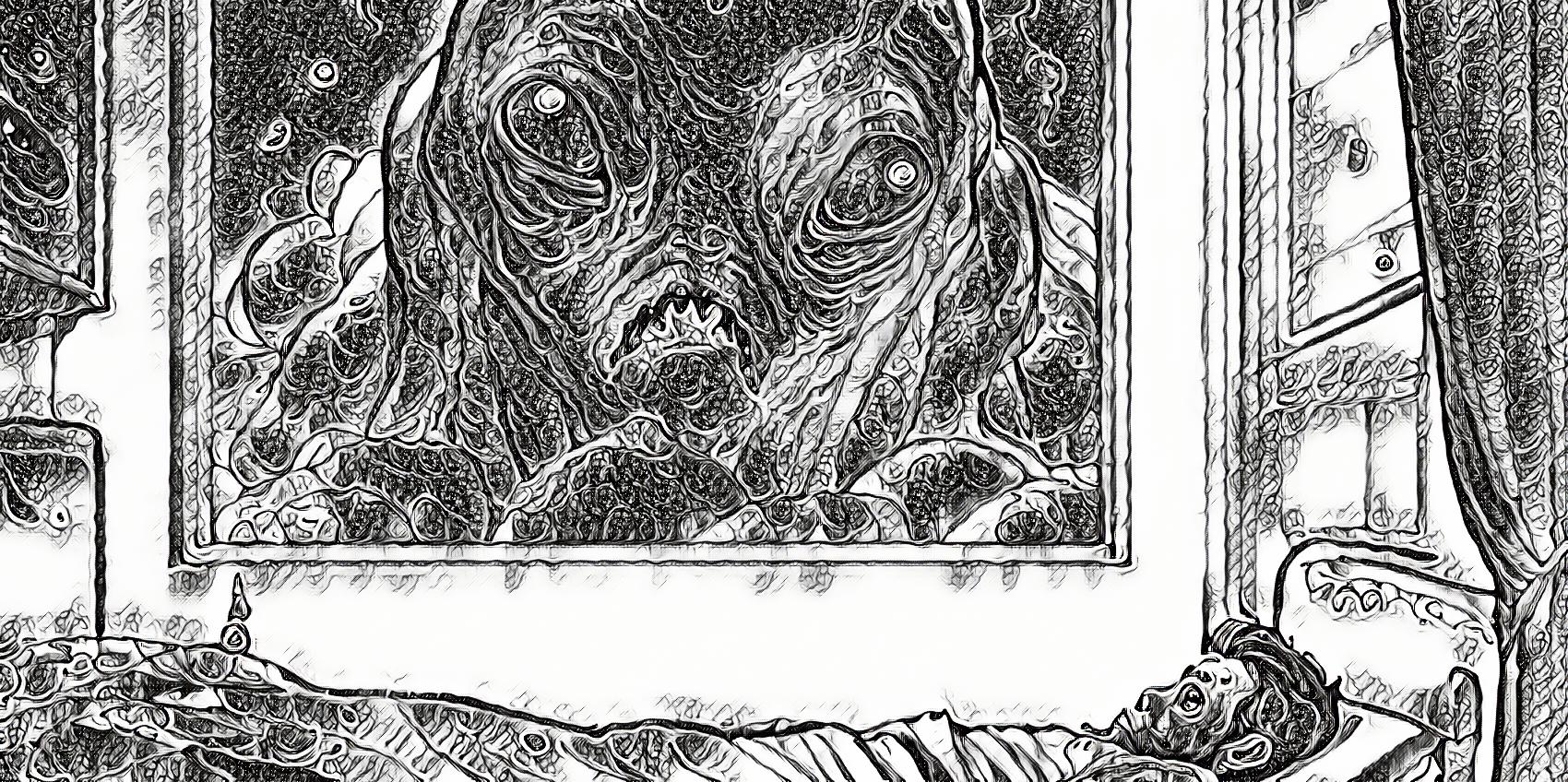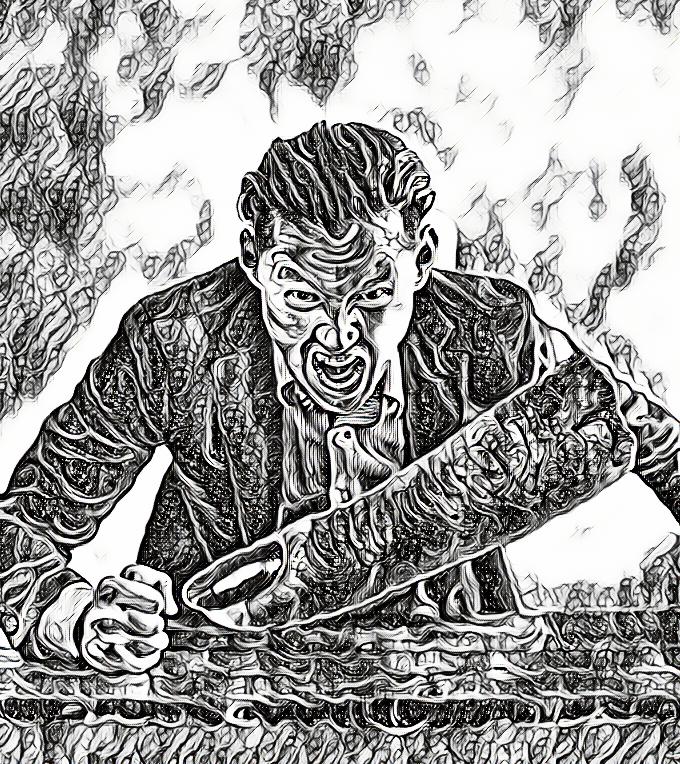I
Somebody asked for the cigars. We had talked long, and the conversation was beginning to languish; the tobacco smoke had got into the heavy curtains, the wine had got into those brains which were liable to become heavy, and it was already perfectly evident that, unless somebody did something to rouse our oppressed spirits, the meeting would soon come to its natural conclusion, and we, the guests, would speedily go home to bed, and most certainly to sleep. No one had said anything very remarkable; it may be that no one had anything very remarkable to say. Jones had given us every particular of his last hunting adventure in Yorkshire. Mr. Tompkins, of Boston, had explained at elaborate length those working principles, by the due and careful maintenance of which the Atchison, Topeka, and Santa Fe Railroad not only extended its territory, increased its departmental influence, and transported live stock without starving them to death before the day of actual delivery, but, also, had for years succeeded in deceiving those passengers who bought its tickets into the fallacious belief that the corporation aforesaid was really able to transport human life without destroying it. Signer Tombola had endeavoured to persuade us, by arguments which we took no trouble to oppose, that the unity of his country in no way resembled the average modern torpedo, carefully planned, constructed with all the skill of the greatest European arsenals, but, when constructed, destined to be directed by feeble hands into a region where it must undoubtedly explode, unseen, unfeared, and unheard, into the illimitable wastes of political chaos.
It is unnecessary to go into further details. The conversation had assumed proportions which would have bored Prometheus on his rock, which would have driven Tantalus to distraction, and which would have impelled Ixion to seek relaxation in the simple but instructive dialogues of Herr Ollendorff, rather than submit to the greater evil of listening to our talk. We had sat at table for hours; we were bored, we were tired, and nobody showed signs of moving.
Somebody called for cigars. We all instinctively looked towards the speaker. Brisbane was a man of five-and-thirty years of age, and remarkable for those gifts which chiefly attract the attention of men. He was a strong man. The external proportions of his figure presented nothing extraordinary to the common eye, though his size was above the average. He was a little over six feet in height, and moderately broad in the shoulder; he did not appear to be stout, but, on the other hand, he was certainly not thin; his small head was supported by a strong and sinewy neck; his broad, muscular hands appeared to possess a peculiar skill in breaking walnuts without the assistance of the ordinary cracker, and, seeing him in profile, one could not help remarking the extraordinary breadth of his sleeves, and the unusual thickness of his chest. He was one of those men who are commonly spoken of among men as deceptive; that is to say, that though he looked exceedingly strong he was in reality very much stronger than he looked. Of his features I need say little. His head is small, his hair is thin, his eyes are blue, his nose is large, he has a small moustache, and a square jaw. Everybody knows Brisbane, and when he asked for a cigar everybody looked at him.
“It is a very singular thing,” said Brisbane.
Everybody stopped talking. Brisbane’s voice was not loud, but possessed a peculiar quality of penetrating general conversation, and cutting it like a knife. Everybody listened. Brisbane, perceiving that he had attracted their general attention, lit his cigar with great equanimity.
“It is very singular,” he continued, “that thing about ghosts. People are always asking whether anybody has seen a ghost. I have.”
“Bosh! What, you? You don’t mean to say so, Brisbane? Well, for a man of his intelligence!”
A chorus of exclamations greeted Brisbane’s remarkable statement. Everybody called for cigars, and Stubbs, the butler, suddenly appeared from the depths of nowhere with a fresh bottle of dry champagne. The situation was saved; Brisbane was going to tell a story.
I am an old sailor, said Brisbane, and as I have to cross the Atlantic pretty often, I have my favourites. Most men have their favourites. I have seen a man wait in a Broadway bar for three-quarters of an hour for a particular car which he liked. I believe the bar-keeper made at least one-third of his living by that man’s preference. I have a habit of waiting for certain ships when I am obliged to cross that duck-pond. It may be a prejudice, but I was never cheated out of a good passage but once in my life. I remember it very well; it was a warm morning in June, and the Custom House officials, who were hanging about waiting for a steamer already on her way up from the Quarantine, presented a peculiarly hazy and thoughtful appearance. I had not much luggage—I never have. I mingled with the crowd of passengers, porters, and officious individuals in blue coats and brass buttons, who seemed to spring up like mushrooms from the deck of a moored steamer to obtrude their unnecessary services upon the independent passenger. I have often noticed with a certain interest the spontaneous evolution of these fellows. They are not there when you arrive; five minutes after the pilot has called “Go ahead!” they, or at least their blue coats and brass buttons, have disappeared from deck and gangway as completely as though they had been consigned to that locker which tradition unanimously ascribes to Davy Jones. But, at the moment of starting, they are there, clean shaved, blue-coated, and ravenous for fees. I hastened on board. The Kamtschatka was one of my favourite ships. I say was, because she emphatically no longer is. I cannot conceive of any inducement which could entice me to make another voyage in her. Yes, I know what you are going to say. She is uncommonly clean in the run aft, she has enough bluffing off in the bows to keep her dry, and the lower berths are most of them double. She has a lot of advantages, but I won’t cross in her again. Excuse the digression. I got on board. I hailed a steward, whose red nose and redder whiskers were equally familiar to me.
“One hundred and five, lower berth,” said I, in the business-like tone peculiar to men who think no more of crossing the Atlantic than taking a whisky cocktail at downtown Delmonico’s.
The steward took my portmanteau, great-coat, and rug. I shall never forget the expression of his face. Not that he turned pale. It is maintained by the most eminent divines that even miracles cannot change the course of nature. I have no hesitation in saying that he did not turn pale; but, from his expression, I judged that he was either about to shed tears, to sneeze, or to drop my portmanteau. As the latter contained two bottles of particularly fine old sherry presented to me for my voyage by my old friend Snigginson van Pickyns, I I felt extremely nervous. But the steward did none of these things.
“Well, I’m d——d!” said he in a low voice, and led the way.
I supposed my Hermes, as he led me to the lower regions, had had a little grog, but I said nothing, and followed him. One hundred and five was on the port side, well aft. There was nothing remarkable about the state-room. The lower berth, like most of those upon the Kamtschatka, was double. There was plenty of room; there was the usual washing apparatus, calculated to convey an idea of luxury to the mind of a North American Indian; there were the usual inefficient racks of brown wood, in which it is more easy to hang a large-sized umbrella than the common tooth-brush of commerce. Upon the uninviting mattresses were carefully folded together those blankets which a great modern humorist has aptly compared to cold buckwheat cakes. The question of towels was left entirely to the imagination. The glass decanters were filled with a transparent liquid faintly tinged with brown, but from which an odour less faint, but not more pleasing, ascended to the nostrils, like a far-off sea-sick reminiscence of oily machinery. Sad-coloured curtains half closed the upper berth. The hazy June daylight shed a faint illumination upon the desolate little scene. Ugh! how I hate that state-room!
The steward deposited my traps and looked at me, as though he wanted to get away—probably in search of more passengers and more fees. It is always a good plan to start in favour with those functionaries, and I accordingly gave him certain coins there and then.
“I’ll try and make yer comfortable all I can,” he remarked, as he put the coins in his pocket. Nevertheless, there was a doubtful intonation in his voice which surprised me. Possibly his scale of fees had gone up, and he was not satisfied; but on the whole I was inclined to think that, as he himself would have expressed it, he was “the better for a glass.” I was wrong, however, and did the man injustice.
II
Nothing especially worthy of mention occurred during that day. We left the pier punctually, and it was very pleasant to be fairly under way, for the weather was warm and sultry, and the motion of the steamer produced a refreshing breeze. Everybody knows what the first day at sea is like. People pace the decks and stare at each other, and occasionally meet acquaintances whom they did not know to be on board. There is the usual uncertainty as to whether the food will be good, bad, or indifferent, until the first two meals have put the matter beyond a doubt; there is the usual uncertainty about the weather, until the ship is fairly off Fire Island. The tables are crowded at first, and then suddenly thinned. Pale-faced people spring from their seats and precipitate themselves towards the door, and each old sailor breathes more freely as his seasick neighbour rushes from his side, leaving him plenty of elbow-room and an unlimited command over the mustard. One passage across the Atlantic is very much like another, and we who cross very often do not make the voyage for the sake of novelty. Whales and icebergs are indeed always objects of interest, but, after all, one whale is very much like another whale, and one rarely sees an iceberg at close quarters. To the majority of us the most delightful moment of the day on board an ocean steamer is when we have taken our last turn on deck, have smoked our last cigar, and having succeeded in tiring ourselves, feel at liberty to turn in with a clear conscience. On that first night of the voyage I felt particularly lazy, and went to bed in 105 rather earlier than I usually do. As I turned in, I was amazed to see that I was to have a companion. A portmanteau, very like my own, lay in the opposite corner, and in the upper berth had been deposited a neatly folded rug, with a stick and umbrella. I had hoped to be alone, and I was disappointed; but I wondered who my room-mate was to be, and I determined to have a look at him.
Before I had been long in bed he entered. He was, as far as I could see, a very tall man, very thin, very pale, with sandy hair and whiskers and colourless grey eyes. He had about him, I thought, an air of rather dubious fashion; the sort of man you might see in Wall Street, without being able precisely to say what he was doing there—the sort of man who frequents the Café Anglais, who always seems to be alone and who drinks champagne; you might meet him on a racecourse, but he would never appear to be doing anything there either. A little overdressed—a little odd. There are three or four of his kind on every ocean steamer. I made up my mind that I did not care to make his acquaintance, and I went to sleep saying to myself that I would study his habits in order to avoid him. If he rose early, I would rise late; if he went to bed late, I would go to bed early. I did not care to know him. If you once know people of that kind they are always turning up. Poor fellow! I need not have taken the trouble to come to so many decisions about him, for I never saw him again after that first night in 105.
I was sleeping soundly when I was suddenly waked by a loud noise. To judge from the sound, my room-mate must have sprung with a single leap from the upper berth to the floor. I heard him fumbling with the latch and bolt of the door, which opened almost immediately, and then I heard his footsteps as he ran at full speed down the passage, leaving the door open behind him. The ship was rolling a little, and I expected to hear him stumble or fall, but he ran as though he were running for his life. The door swung on its hinges with the motion of the vessel, and the sound annoyed me. I got up and shut it, and groped my way back to my berth in the darkness. I went to sleep again; but I have no idea how long I slept.
When I awoke it was still quite dark, but I felt a disagreeable sensation of cold, and it seemed to me that the air was damp. You know the peculiar smell of a cabin which has been wet with sea-water. I covered myself up as well as I could and dozed off again, framing complaints to be made the next day, and selecting the most powerful epithets in the language. I could hear my room-mate turn over in the upper berth. He had probably returned while I was asleep. Once I thought I heard him groan, and I argued that he was sea-sick. That is particularly unpleasant when one is below. Nevertheless I dozed off and slept till early daylight.
The ship was rolling heavily, much more than on the previous evening, and the grey light which came in through the porthole changed in tint with every movement according as the angle of the vessel’s side turned the glass seawards or skywards. It was very cold—unaccountably so for the month of June. I turned my head and looked at the porthole, and saw to my surprise that it was wide open and hooked back. I believe I swore audibly. Then I got up and shut it. As I turned back I glanced at the upper berth. The curtains were drawn close together; my companion had probably felt cold as well as I. It struck me that I had slept enough. The state-room was uncomfortable, though, strange to say, I could not smell the dampness which had annoyed me in the night. My room-mate was still asleep—excellent opportunity for avoiding him, so I dressed at once and went on deck. The day was warm and cloudy, with an oily smell on the water. It was seven o’clock as I came out—much later than I had imagined. I came across the doctor, who was taking his first sniff of the morning air. He was a young man from the West of Ireland—a tremendous fellow, with black hair and blue eyes, already inclined to be stout; he had a happy-go-lucky, healthy look about him which was rather attractive.
“Fine morning,” I remarked, by way of introduction.
“Well,” said he, eyeing me with an air of ready interest, “it’s a fine morning and it’s not a fine morning. I don’t think it’s much of a morning.”
“Well, no—it is not so very fine,” said I.
“It’s just what I call fuggly weather,” replied the doctor.
“It was very cold last night, I thought,” I remarked, “However, when I looked about, I found that the porthole was wide open. I had not noticed it when I went to bed. And the state-room was damp, too.”
“Damp!” said he. “Whereabouts are you?”
“One hundred and five——”
To my surprise the doctor started visibly, and stared at me.
“What is the matter?” I asked.
“Oh—nothing,” he answered; “Only everybody has complained of that state-room for the last three trips.”
“I shall complain, too,” I said. “It has certainly not been properly aired. It is a shame!”
“I don’t believe it can be helped,” answered the doctor. “I believe there is something—well, it is not my business to frighten passengers.”
“You need not be afraid of frightening me,” I replied. “I can stand any amount of damp.’ If I should get a bad cold I will come to you.”
I offered the doctor a cigar, which he took and examined very critically.
“It is not so much the damp,” he remarked. “However, I dare say you will get on very well. Have you a room-mate?”
“Yes; a deuce of a fellow, who bolts out in the middle of the night, and leaves the door open.”
Again the doctor glanced curiously at me. Then he lit the cigar and looked grave.
“Did he come back?” he asked presently.
“Yes. I was asleep, but I waked up, and heard him moving. Then I felt cold and went to sleep again. This morning I found the porthole open.”
“Look here,” said the doctor quietly, “I don’t care much for this ship. I don’t care a rap for her reputation. I tell you what I will do. I have a good-sized place up here. I will share it with you, though I don’t know you from Adam.”
I was very much surprised at the proposition. I could not imagine why he should take such a sudden interest in my welfare. However, his manner as he spoke of the ship was peculiar.
“You are very good, doctor,” I said. “But, really, I believe even now the cabin could be aired, or cleaned out, or something. Why do you not care for the ship?”
“We are not superstitious in our profession, sir,” replied the doctor, “but the sea makes people so. I don’t want to prejudice you, and I don’t want to frighten you, but if you will take my advice you will move in here. I would as soon see you overboard,” he added earnestly, “as know that you or any other man was to sleep in 105.”
“Good gracious! Why?” I asked.
“Just because on the last three trips the people who have slept there actually have gone overboard,” he answered gravely.
The intelligence was startling and exceedingly unpleasant, I confess. I looked hard at the doctor to see whether he was making game of me, but he looked perfectly serious. I thanked him warmly for his offer, but told him I intended to be the exception to the rule by which everyone who slept in that particular state-room went overboard. He did not say much, but looked as grave as ever, and hinted that, before we got across, I should probably reconsider his proposal. In the course of time we went to breakfast, at which only an inconsiderable number of passengers assembled. I noticed that one or two of the officers who breakfasted with us looked grave. After breakfast I went into my state-room in order to get a book. The curtains of the upper berth were still closely drawn. Not a word was to be heard. My room-mate was probably still asleep.
As I came out I met the steward whose business it was to look after me. He whispered that the captain wanted to see me, and then scuttled away down the passage as if very anxious to avoid any questions. I went toward the captain’s cabin, and found him waiting for me.
“Sir,” said he, “I want to ask a favour of you.”
I answered that I would do anything to oblige him.
“Your room-mate has disappeared,” he said. “He is known to have turned in early last night. Did you notice anything extraordinary in his manner?”
The question coming, as it did, in exact confirmation of the fears the doctor had expressed half an hour earlier, staggered me.
“You don’t mean to say he has gone overboard?” I asked.
“I fear he has,” answered the captain.
“This is the most extraordinary thing——” I began.
“Why?” he asked.
“He is the fourth, then?” I explained. In answer to another question from the captain, I explained, without mentioning the doctor, that I had heard the story concerning 105. He seemed very much annoyed at hearing that I knew of it. I told him what had occurred in the night.
“What you say,” he replied, “coincides almost exactly with what was told me by the room-mates of two of the other three. They bolt out of bed and run down the passage. Two of them were seen to go overboard by the watch; we stopped and lowered boats, but they were not found. Nobody, however, saw or heard the man who was lost last night—if he is really lost. The steward, who is a superstitious fellow, perhaps, and expected something to go wrong, went to look for him this morning, and found his berth empty, but his clothes lying about, just as he had left them. The steward was the only man on board who knew him by sight, and he has been searching everywhere for him. He has disappeared! Now, sir, I want to beg you not to mention the circumstance to any of the passengers; I don’t want the ship to get a bad name, and nothing hangs about an ocean-goer like stories of suicides. You shall have your choice of any one of the officers’ cabins you like, including my own, for the rest of the passage. Is that a fair bargain?”
“Very,” said I; “and I am much obliged to you. But since I am alone, and have the state-room to myself, I would rather not move. If the steward will take out that unfortunate man’s things, I would as lief stay where I am. I will not say anything about the matter, and I think I can promise you that I will not follow my room-mate.”
The captain tried to dissuade me from my intention, but I preferred having a state-room alone to being the chum of any officer on board. I do not know whether I acted foolishly, but if I had taken his advice I should have had nothing more to tell; There would have remained the disagreeable coincidence of several suicides occurring among men who had slept in the same cabin, but that would have been all.
That was not the end of the matter, however, by any means. I obstinately made up my mind that I would not be disturbed by such tales, and I even went so far as to argue the question with the captain. There was something wrong about the state-room, I said. It was rather damp. The porthole had been left open last night. My room-mate might have been ill when he came on board, and he might have become delirious after he went to bed. He might even now be hiding somewhere on board, and might be found later. The place ought to be aired and the fastening of the port looked to. If the captain would give me leave, I would see that what I thought necessary was done immediately.
“Of course you have a right to stay where you are if you please,” he replied, rather petulantly; “but I wish you would turn out and let me lock the place up, and be done with it.”
I did not see it in the same light, and left the captain, after promising to be silent concerning the disappearance of my companion. The latter had had no acquaintances on board, and was not missed in the course of the day. Towards evening I met the doctor again, and he asked me whether I had changed my mind. I told him I had not.
“Then you will before long,” he said, very gravely.
III
We played whist in the evening, and I went to bed late. I will confess now that I felt a disagreeable sensation when I entered my state-room. I could not help thinking of the tall man I had seen on the previous night, who was now dead, drowned, tossing about in the long swell, two or three hundred miles astern. His face rose very distinctly before me as I undressed, and I even went so far as to draw back the curtains of the upper berth, as though to persuade myself that he was actually gone. I also bolted the door of the state-room. Suddenly I became aware that the porthole was open, and fastened back. This was more than I could stand. I hastily threw on my dressing-gown and went in search of Robert, the steward of my passage. I was very angry, I remember, and when I found him I dragged him roughly to the door of 105, and pushed him towards the open porthole.
“What the deuce do you mean, you scoundrel, by leaving that port open every night? Don’t you know it is against the regulations? Don’t you know that if the ship heeled and the water began to come in, ten men could not shut it? I will report you to the captain, you blackguard, for endangering the ship!”
I was exceedingly wroth. The man trembled and turned pale, and then began to shut the round glass plate with the heavy brass fittings.
“Why don’t you answer me?” I said roughly.
“If you please, sir,” faltered Robert, “there’s nobody on board as can keep this ‘ere port shut at night. You can try it yourself, sir. I ain’t a-going to stop hany longer on board o’ this vessel, sir; I ain’t, indeed. But if I was you, sir, I’d just clear out and go and sleep with the surgeon, or something, I would. Look ‘ere, sir, is that fastened what you may call securely, or not, sir? Try it, sir, see if it will move a hinch.”
I tried the port, and found it perfectly tight.
“Well, sir,” continued Robert triumphantly, “I wager my reputation as a A1 steward that in ‘arf an hour it will be open again; fastened back, too, sir, that’s the horful thing—fastened back!”
I examined the great screw and the looped nut that ran on it.
“If I find it open in the night, Robert, I will give you a sovereign. It is not possible. You may go.”
“Soverin’ did you say, sir? Very good, sir. Thank ye, sir. Good night, sir. Pleasant reepose, sir, and all manner of hinchantin’ dreams, sir.”
Robert scuttled away, delighted at being released. Of course, I thought he was trying to account for his negligence by a silly story, intended to frighten me, and I disbelieved him. The consequence was that he got his sovereign, and I spent a very peculiarly unpleasant night.
I went to bed, and five minutes after I had rolled myself up in my blankets the inexorable Robert extinguished the light that burned steadily behind the ground-glass pane near the door. I lay quite still in the dark trying to go to sleep, but I soon found that impossible. It had been some satisfaction to be angry with the steward, and the diversion had banished that unpleasant sensation I had at first experienced when I thought of the drowned man who had been my chum; but I was no longer sleepy, and I lay awake for some time, occasionally glancing at the porthole, which I could just see from where I lay, and which, in the darkness, looked like a faintly luminous soup-plate suspended in blackness. I believe I must have lain there for an hour, and, as I remember, I was just dozing into sleep when I was roused by a draught of cold air, and by distinctly feeling the spray of the sea blown upon my face. I started to my feet, and not having allowed in the dark for the motion of the ship, I was instantly thrown violently across the state-room upon the couch which was placed beneath the porthole. I recovered myself immediately, however, and climbed upon my knees. The porthole was again wide open and fastened back!
Now these things are facts. I was wide awake when I got up, and I should certainly have been waked by the fall had I still been dozing. Moreover, I bruised my elbows and knees badly, and the bruises were there on the following morning to testify to the fact, if I myself had doubted it. The porthole was wide open and fastened back—a thing so unaccountable that I remember very well feeling astonishment rather than fear when I discovered it. I at once closed the plate again, and screwed down the loop nut with all my strength. It was very dark in the state-room. I reflected that the port had certainly been opened within an hour after Robert had at first shut it in my presence, and I determined to watch it, and see whether it would open again. Those brass fittings are very heavy and by no means easy to move; I could not believe that the clump had been turned by the shaking of the screw. I stood peering out through the thick glass at the alternate white and grey streaks of the sea that foamed beneath the ship’s side. I must have remained there a quarter of an hour. Suddenly, as I stood, I distinctly heard something moving behind me in one of the berths, and a moment afterwards, just as I turned instinctively to look—though I could, of course, see nothing in the darkness—I heard a very faint groan. I sprang across the state-room, and tore the curtains of the upper berth aside, thrusting in my hands to discover if there were any one there. There was someone.
I remember that the sensation as I put my hands forward was as though I were plunging them into the air of a damp cellar, and from behind the curtains came a gust of wind that smelled horribly of stagnant sea-water. I laid hold of something that had the shape of a man’s arm, but was smooth, and wet, and icy cold. But suddenly, as I pulled, the creature sprang violently forward against me, a clammy, oozy mass, as it seemed to me, heavy and wet, yet endowed with a sort of supernatural strength. I reeled across the state-room, and in an instant the door opened and the thing rushed out. I had not had time to be frightened, and quickly recovering myself, I sprang through the door and gave chase at the top of my speed, but I was too late. Ten yards before me I could see—I am sure I saw it—a dark shadow moving in the dimly lighted passage, quickly as the shadow of a fast horse thrown before a dog-cart by the lamp on a dark night. But in a moment it had disappeared, and I found myself holding on to the polished rail that ran along the bulkhead where the passage turned towards the companion. My hair stood on end, and the cold perspiration rolled down my face. I am not ashamed of it in the least: I was very badly frightened.
Still I doubted my senses, and pulled myself together. It was absurd, I thought. The Welsh rarebit I had eaten had disagreed with me. I had been in a nightmare. I made my way back to my state-room, and entered it with an effort. The whole place smelled of stagnant sea-water, as it had when I had waked on the previous evening. It required my utmost strength to go in, and grope among my things for a box of wax lights. As I lighted a railway reading lantern which I always carry in case I want to read after the lamps are out, I perceived that the porthole was again open, and a sort of creeping horror began to take possession of me which I never felt before, nor wish to feel again. But I got a light and proceeded to examine the upper berth, expecting to find it drenched with sea-water.
But I was disappointed. The bed had been slept in, and the smell of the sea was strong; but the bedding was as dry as a bone. I fancied that Robert had not had the courage to make the bed after the accident of the previous night—it had all been a hideous dream. I drew the curtains back as far as I could and examined the place very carefully. It was perfectly dry. But the porthole was open again. With a sort of dull bewilderment of horror I closed it and screwed it down, and thrusting my heavy stick through the brass loop, wrenched it with all my might, till the thick metal began to bend under the pressure. Then I hooked my reading lantern into the red velvet at the head of the couch, and sat down to recover my senses if I could. I sat there all night, unable to think of rest—hardly able to think at all. But the porthole remained closed, and I did not believe it would now open again without the application of a considerable force.
The morning dawned at last, and I dressed myself slowly, thinking over all that had happened in the night. It was a beautiful day and I went on deck, glad to get out into the early, pure sunshine, and to smell the breeze from the blue water, so different from the noisome, stagnant odour of my state-room. Instinctively I turned aft, towards the surgeon’s cabin. There he stood, with a pipe in his mouth, taking his morning airing precisely as on the preceding day.
“Good morning,” said he quietly, but looking at me with evident curiosity.
“Doctor, you were quite right,” said I. “There is something wrong about that place.”
“I thought you would change your mind,” he answered, rather triumphantly. “You have had a bad night, eh? Shall I make you a pick-me-up? I have a capital recipe.”
“No, thanks,” I cried. “But I would like to tell you what happened.”
I then tried to explain as clearly as possible precisely what had occurred, not omitting to state that I had been scared as I had never been scared in my whole life before. I dwelt particularly on the phenomenon of the porthole, which was a fact to which I could testify, even if the rest had been an illusion. I had closed it twice in the night, and the second time I had actually bent the brass in wrenching it with my stick. I believe I insisted a good deal on this point.
“You seem to think I am likely to doubt the story,” said the doctor, smiling at the detailed account of the state of the porthole. “I do not doubt it in the least. I renew my invitation to you. Bring your traps here, and take half my cabin.”
“Come and take half of mine for one night,” I said. “Help me to get at the bottom of this thing.”
“You will get to the bottom of something else if you try,” answered the doctor.
“What?” I asked.
“The bottom of the sea. I am going to leave this ship. It is not canny.”
“Then you will not help me to find out——”
“Not I,” said the doctor quickly. “It is my business to keep my wits about me—not to go fiddling about with ghosts and things.”
“Do you really believe it is a ghost?” I enquired, rather contemptuously. But as I spoke I remembered very well the horrible sensation of the supernatural which had got possession of me during the night. The doctor turned sharply on me.
“Have you any reasonable explanation of these things to offer?” he asked. “No; you have not. Well, you say you will find an explanation. I say that you won’t, sir, simply because there is not any.”
“But, my dear sir,” I retorted, “do you, a man of science, mean to tell me that such things cannot be explained?”
“I do,” he answered stoutly. “And, if they could, I would not be concerned in the explanation.”
I did not care to spend another night alone in the state-room, and yet I was obstinately determined to get at the root of the disturbances. I do not believe there are many men who would have slept there alone, after passing two such nights. But I made up my mind to try it, if I could not get any one to share a watch with me. The doctor was evidently not inclined for such an experiment. He said he was a surgeon, and that in case any accident occurred on board he must be always in readiness. He could not afford to have his nerves unsettled. Perhaps he was quite right, but I am inclined to think that his precaution was prompted by his inclination. On enquiry, he informed me that there was no one on board who would be likely to join me in my investigations, and after a little more conversation I left him. A little later I met the captain, and told him my story. I said that, if no one would spend the night with me, I would ask leave to have the light burning all night, and would try it alone.
“Look here,” said he, “I will tell you what I will do. I will share your watch myself, and we will see what happens. It is my belief that we can find out between us. There may be some fellow skulking on board, who steals a passage by frightening the passengers. It is just possible that there may be something queer in the carpentering of that berth.”
I suggested taking the ship’s carpenter below and examining the place; but I was overjoyed at the captain’s offer to spend the night with me. He accordingly sent for the workman and ordered him to do anything I required. We went below at once. I had all the bedding cleared out of the upper berth, and we examined the place thoroughly to see if there was a board loose anywhere, or a panel which could be opened or pushed aside. We tried the planks everywhere, tapped the flooring, unscrewed the fittings of the lower berth and took it to pieces—in short, there was not a square inch of the stateroom which was not searched and tested. Everything was in perfect order, and we put everything back in its place. As we were finishing our work, Robert came to the door and looked in.
“Well, sir—find anything, sir?” he asked, with a ghastly grin.
“You were right about the porthole, Robert,” I said, and I gave him the promised sovereign. The carpenter did his work silently and skilfully, following my directions. When he had done he spoke.
“I’m a plain man, sir,” he said. “But it’s my belief you had better just turn out your things, and let me run half a dozen four-inch screws through the door of this cabin. There’s no good never came o’ this cabin yet, sir, and that’s all about it. There’s been four lives lost out o’ here to my own remembrance, and that in four trips. Better give it up, sir—better give it up!”
“I will try it for one night more,” I said.
“Better give it up, sir—better give it up! It’s a precious bad job,” repeated the workman, putting his tools in his bag and leaving the cabin.
But my spirits had risen considerably at the prospect of having the captain’s company, and I made up my mind not to be prevented from going to the end of the strange business. I abstained from Welsh rarebits and grog that evening, and did not even join in the customary game of whist. I wanted to be quite sure of my nerves, and my vanity made me anxious to make a good figure in the captain’s eyes.
IV
The captain was one of those splendidly tough and cheerful specimens of seafaring humanity whose combined courage, hardihood, and calmness in difficulty leads them naturally into high positions of trust. He was not the man to be led away by an idle tale, and the mere fact that he was willing to join me in the investigation was proof that he thought there was something seriously wrong, which could not be accounted for on ordinary theories, nor laughed down as a common superstition. To some extent, too, his reputation was at stake, as well as the reputation of the ship. It is no light thing to lose passengers overboard, and he knew it.
About ten o’clock that evening, as I was smoking a last cigar, he came up to me, and drew me aside from the beat of the other passengers who were patrolling the deck in the warm darkness.
“This is a serious matter, Mr. Brisbane,” he said. “We must make up our minds either way—-to be disappointed or to have a pretty rough time of it. You see I cannot afford to laugh at the affair, and I will ask you to sign your name to a statement of whatever occurs. If nothing happens to-night we will try it again to-morrow and next day. Are you ready?” So we went below, and entered the state-room. As we went in I could see Robert the steward, who stood a little further down the passage, watching us, with his usual grin, as though certain that something dreadful was about to happen. The captain closed the door behind us and bolted it.
“Supposing we put your portmanteau before the door,” he suggested. “One of us can sit on it. Nothing can get out then. Is the port screwed down?”
I found it as I had left it in the morning. Indeed, without using a lever, as I had done, no one could have opened it. I drew back the curtains of the upper berth so that I could see well into it. By the captain’s advice I lighted my reading lantern, and placed it so that it shone upon the white sheets above. He insisted upon sitting on the portmanteau, declaring that he wished to be able to swear that he had sat before the door.
Then he requested me to search the state-room thoroughly, an operation very soon accomplished, as it consisted merely in looking beneath the lower berth and under the couch below the porthole. The spaces were quite empty.
“It is impossible for any human being to get in,” I said, “or for any human being to open the port.”
“Very good,” said the captain calmly. “If we see anything now, it must be either imagination or something supernatural.”
I sat down on the edge of the lower berth.
“The first time it happened,” said the captain, crossing his legs and leaning back against the door, “was in March. The passenger who slept here, in the upper berth, turned out to have been a lunatic—at all events, he was known to have been a little touched, and he had taken his passage without the knowledge of his friends. He rushed out in the middle of the night and threw himself overboard, before the officer who had the watch could stop him. We stopped and lowered a boat; it was a quiet night, just before that heavy weather came on; but we could not find him. Of course, his suicide was afterwards accounted for on the ground of his insanity.”
“I suppose that often happens?” I remarked, rather absently.
“Not often—no,” said the captain; “never before in my experience, though I have heard of it happening on board of other ships. Well, as I was saying, that occurred in March. On the very next trip——What are you looking at?” he asked, stopping suddenly in his narration.
I believe I gave no answer. My eyes were riveted upon the porthole. It seemed to me that the brass loop-nut was beginning to turn very slowly upon the screw—so slowly, however, that I was not sure it moved at all. I watched it intently, fixing its position in my mind, and trying to ascertain whether it changed. Seeing where I was looking, the captain looked, too.
“It moves!” he exclaimed, in a tone of conviction. “No, it does not,” he added, after a minute.
“If it were the jarring of the screw,” said I, “it would have opened during the day; but I found it this evening jammed tight as I left it this morning.”
I rose and tried the nut. It was certainly loosened, for by an effort I could move it with my hands.
“The queer thing,” said the captain, “is that the second man who was lost is supposed to have got through that very port. We had a terrible time over it. It was in the middle of the night, and the weather was very heavy; there was an alarm that one of the ports was open and the sea running in. I came below and found everything flooded, the water pouring in every time she rolled, and the whole port swinging from the top bolts—not the porthole in the middle. Well, we managed to shut it, but the water did some damage. Ever since that the place smells of sea-water from time to time. We supposed the passenger had thrown himself out, though the Lord only knows how he did it. The steward kept telling me that he cannot keep anything shut here. Upon my word—I can smell it now, cannot you?” he enquired, sniffing the air suspiciously.
“Yes—distinctly,” I said, and I shuddered as that same odour of stagnant sea-water grew stronger in the cabin. “Now, to smell like this, the place must be damp,” I continued, “and yet when I examined it with the carpenter this morning everything was perfectly dry. It is most extraordinary—hallo!”
My reading lantern, which had been placed in the upper berth, was suddenly extinguished. There was still a good deal of light from the pane of ground glass near the door, behind which loomed the regulation lamp. The ship rolled heavily, and the curtain of the upper berth swung far out into the state-room and back again. I rose quickly from my seat on the edge of the bed, and the captain at the same moment started to his feet with a loud cry of surprise. I had turned with the intention of taking down the lantern to examine it, when I heard his exclamation, and immediately afterwards his call for help. I sprang towards him. He was wrestling with all his might with the brass loop of the port. It seemed to turn against his hands in spite of all his efforts. I caught up my cane, a heavy oak stick I always used to carry, and thrust it through the ring and bore on it with all my strength. But the strong wood snapped suddenly and I fell upon the couch. When I rose again the port was wide open, and the captain was standing with his back against the door, pale to the lips.
“There is something in that berth!” he cried, in a strange voice, his eyes almost starting from his head. “Hold the door, while I look—it shall not escape us, whatever it is!”
But instead of taking his place, I sprang upon the lower bed, and seized something which lay in the upper berth.
It was something ghostly, horrible beyond words, and it moved in my grip. It was like the body of a man long drowned, and yet it moved, and had the strength of ten men living; but I gripped it with all my might—the slippery, oozy, horrible thing—the dead white eyes seemed to stare at me out of the dusk; the putrid odour of rank sea-water was about it, and its shiny hair hung in foul wet curls over its dead face. I wrestled with the dead thing; it thrust itself upon me and forced me back and nearly broke my arms; it wound its corpse’s arms about my neck, the living death, and overpowered me, so that I, at last, cried aloud and fell, and left my hold.
As I fell the thing sprang across me, and seemed to throw itself upon the captain. When I last saw him on his feet his face was white and his lips set. It seemed to me that he struck a violent blow at the dead being, and then he, too, fell forward upon his face, with an inarticulate cry of horror.
The thing paused an instant, seeming to hover over his prostrate body, and I could have screamed again for very fright, but I had no voice left. The thing vanished suddenly, and it seemed to my disturbed senses that it made its exit through the open port, though how that was possible, considering the smallness of the aperture, is more than any one can tell. I lay a long time upon the floor, and the captain lay beside me. At last I partially recovered my senses and moved, and instantly I knew that my arm was broken—the small bone of the left forearm near the wrist.
I got upon my feet somehow, and with my remaining hand I tried to raise the captain. He groaned and moved, and at last came to himself. He was not hurt, but he seemed badly stunned.
Well, do you want to hear any more? There is nothing more. That is the end of my story. The carpenter carried out his scheme of running half a dozen four-inch screws through the door of 105; and if ever you take a passage in the Kamtschatka, you may ask for a berth in that state-room. You will be told that it is engaged—yes—it is engaged by that dead thing.
I finished the trip in the surgeon’s cabin. He doctored my broken arm, and advised me not to “fiddle about with ghosts and things” any more. The captain was very silent, and never sailed again in that ship, though it is still running. And I will not sail in her either. It was a very disagreeable experience, and I was very badly frightened, which is a thing I do not like. That is all. That is how I saw a ghost—if it was a ghost. It was dead, anyhow.
